Managing Shopify blog posts in bulk (changing titles, meta descriptions, mass edits of content and HTML, tags, and author info, etc.) is a hassle unless you use the Mixtable spreadsheet tool, which is designed to simplify the management of your Shopify store. While it’s commonly used for tasks like exporting orders or inventory management, it can also be used to export blog posts.
This guide will walk you through the steps to set up Mixtable and use it to export your Shopify blog posts.
Once you open the Mixtable Excel and CSV Exporter application, you will see the pre-built workbook templates you can use. Create a workbook from the Blogs and Blog Posts template:
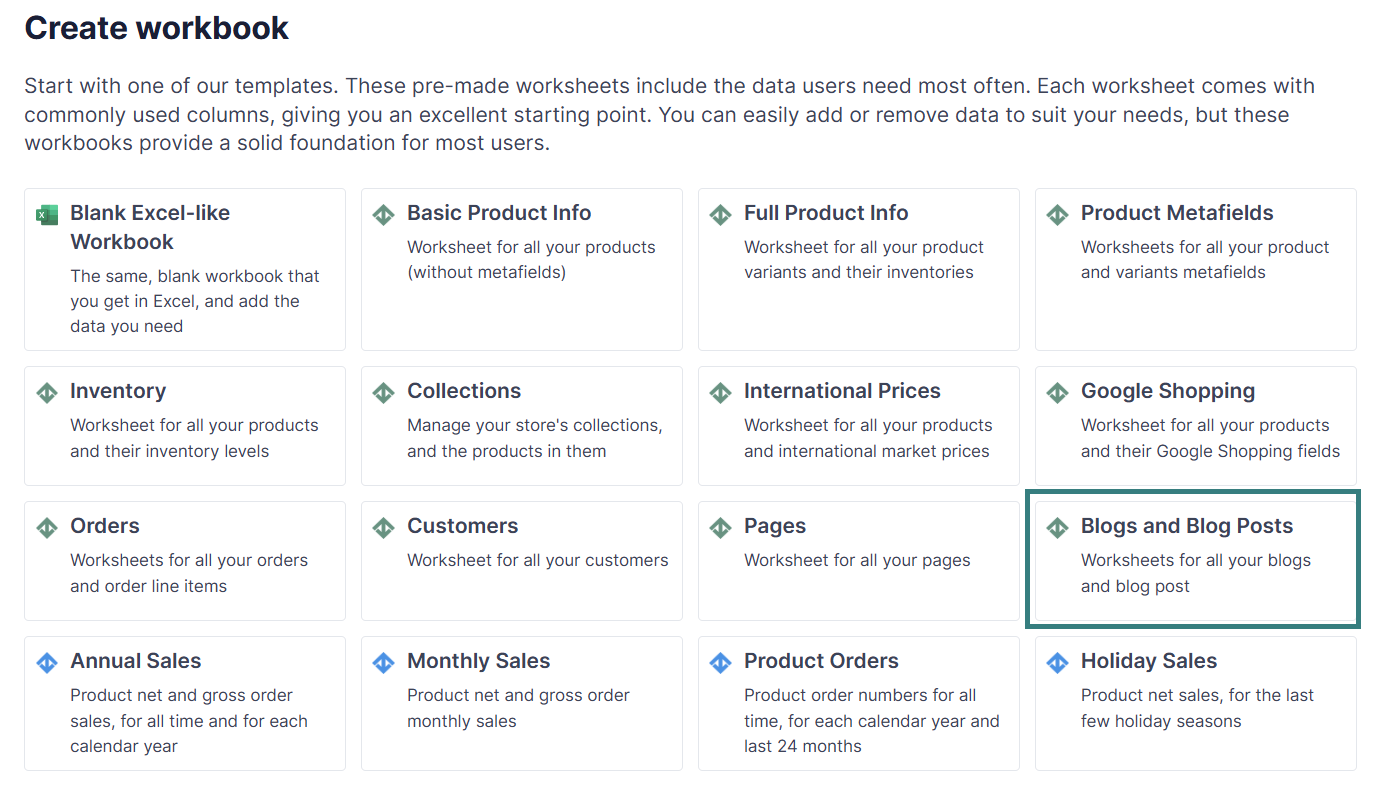
The template contains the following columns:
To load new Shopify data, start by selecting an empty column — any column with a non-green header (green headers mean the column is already linked to Shopify data). Then, click the ⚡️ button in the column header to open the selection window to choose the data you want to pull in.
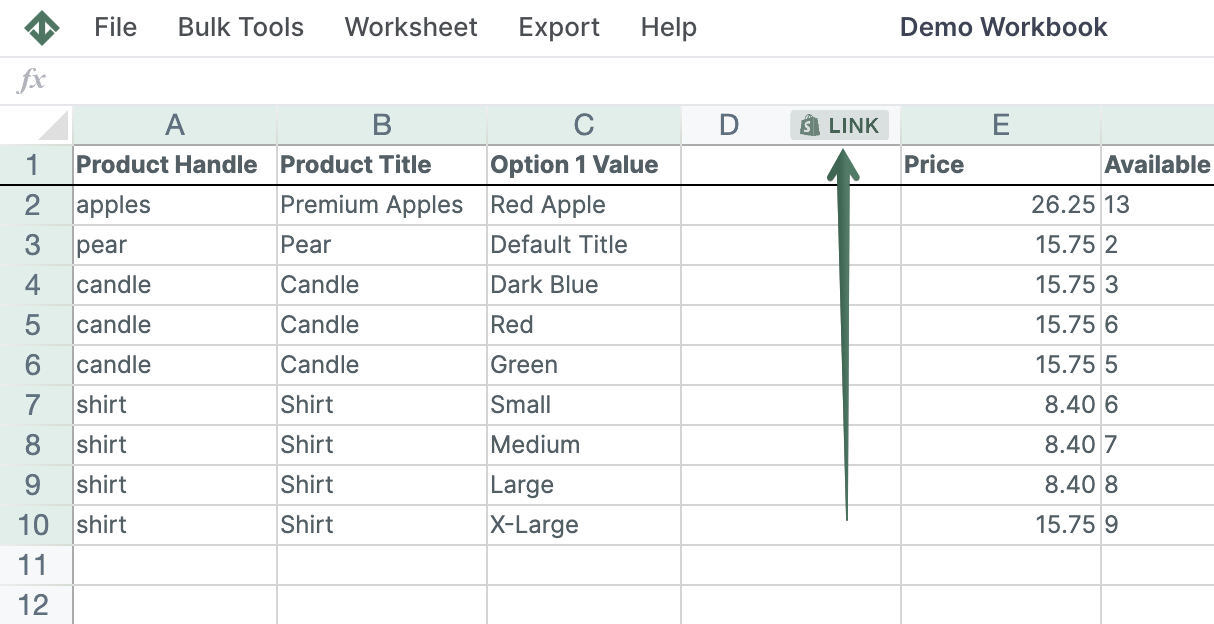
Here, you can select additional data to include to the spreadsheet:
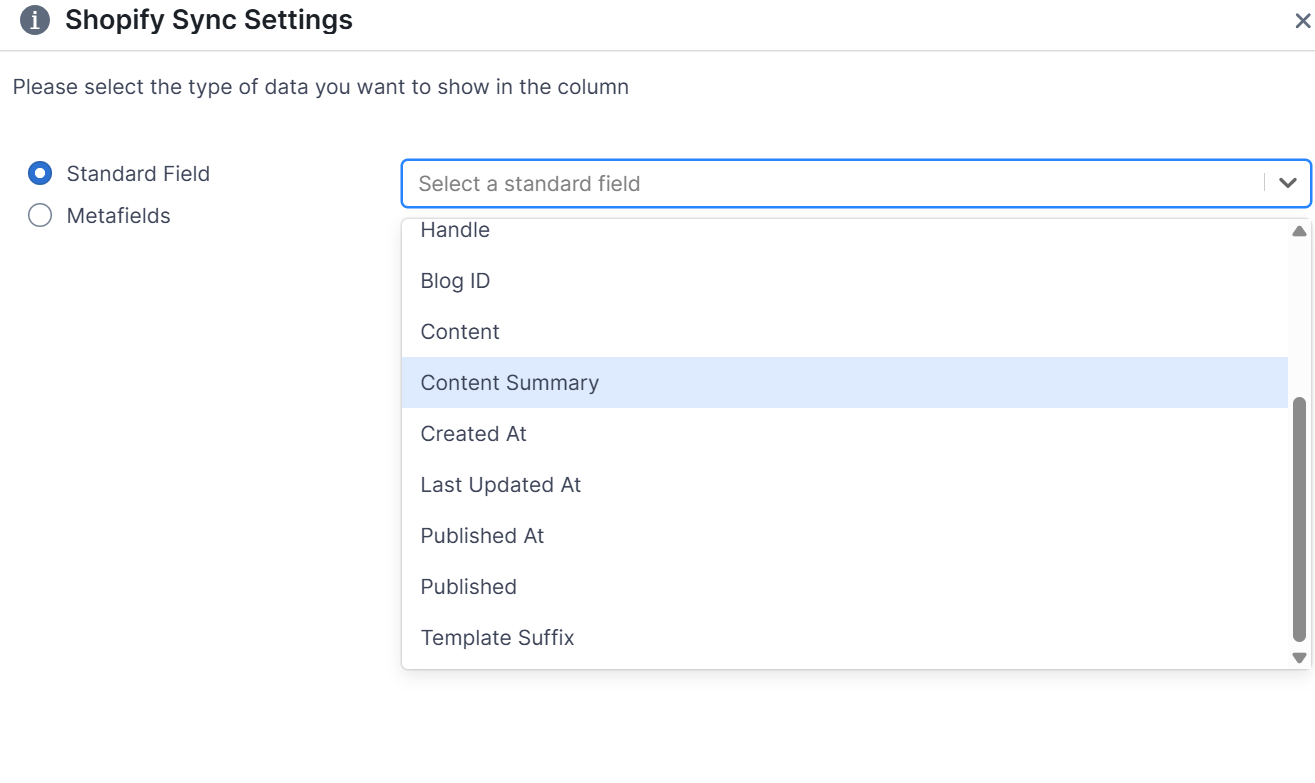
Note: Unlike for other data, Shopify API does not notify Mixtable when blog posts are created or updated in Shopify. So, if any blog posts have been created or updated via the Shopify admin interface, then they won’t automatically be download to your Mixtable worksheet. To sync the new/updated blog posts from Shopify to Mixtable please click the “Sync blog post data from Shopify” button that you can see when working with your blog posts worksheet.
You can add blog posts as an additional worksheet if you already have a Mixtable workbook. Here are the steps to do this:
Before diving into worksheets, you’ll need to create a workbook that syncs data with your Shopify store. To do this, open Mixtable and click on the Add Workbook button. When you initially installed the Mixtable app from the Shopify App Store to your store, Mixtable started an initial download of your Shopify blog posts.
In an existing Mixtable workbook, click the (+) button to add a new worksheet.
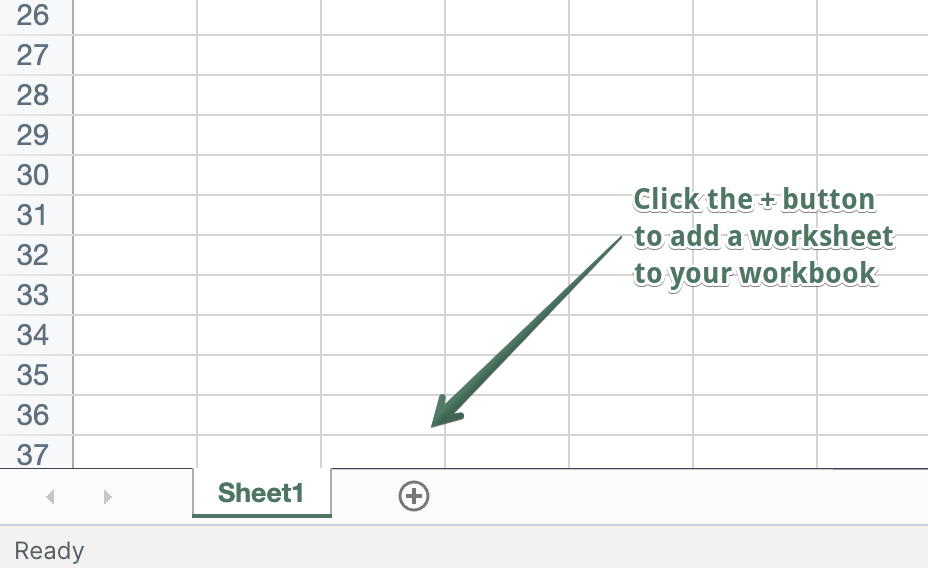
When prompted, select to create a worksheet that syncs your Shopify store’s blog posts. When the worksheet is created, it will have a set of default columns mapped to data, but feel free to add columns for any other blog post data you want. Mixtable will automatically populate these columns with the existing data from your Shopify store.
Note: Unlike for other Shopify data, Shopify does not notify Mixtable when blog posts are created or updated in Shopify. So, if any blog posts have been created or updated in Shopify, via the Shopify admin interface, then they won’t automatically download to your Mixtable worksheet. To sync the new/updated blog posts from Shopify to Mixtable please click the “Sync blog post data from Shopify” button that you can see when looking at your blog posts worksheet.
If you wish to export only specific blog posts or a range of posts, you can set up a Conditional Worksheet. This feature allows you to specify the criteria for the blog posts that should be included in the export.
Before initiating the export process, ensure that all the data you wish to export is correctly populated in the worksheet. This includes the blog post title, content, tags, and any other metadata you want to include.
To start the export, click Import & Export in the top toolbar to open the menu. From the dropdown menu, select the Export to Excel option. You will then be prompted to choose the location where you’d like to save the Excel file on your computer.
Alternatively, you can also export the data to a CSV file. To do this, select the Export to CSV option from the Import & Export menu. Just like with the Excel export, you’ll be prompted to choose a save location for the CSV file.
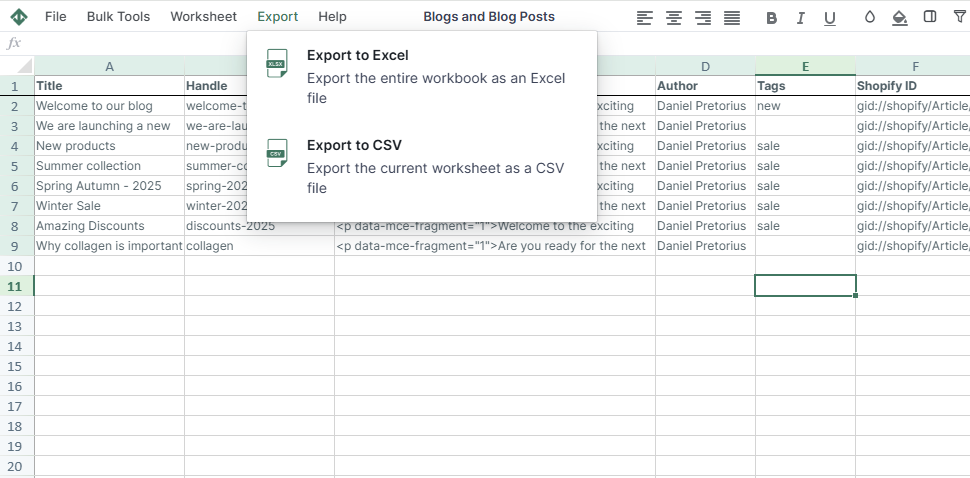
Well done!
Mixtable Excel and CSV Exporter is an Excel-like app built to sync data with Shopify automatically. It looks, feels, and behaves like Excel (including formulas), but runs in your browser. Find here:
Because Mixtable keeps your workbook updated automatically as your Shopify data changes, there’s no need to wait for manual syncs — just open and export.